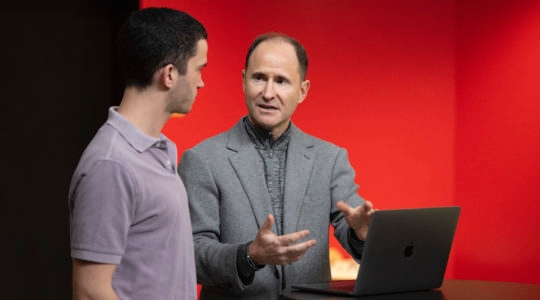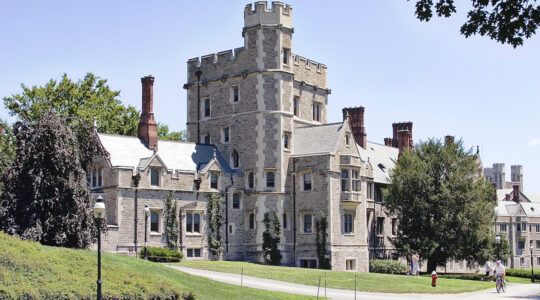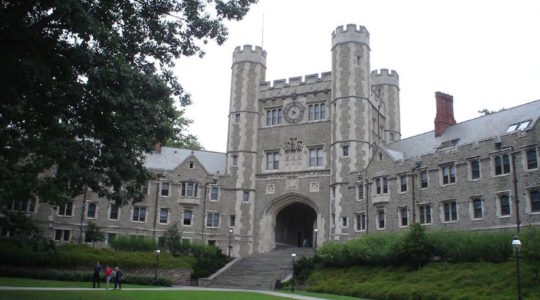The world’s largest breast cancer organization, Susan G. Komen for the Cure, is partnering with Jerusalem, Hadassah: The Women’s Zionist Organization of America, health advocates and scientists for a week of breast cancer-related events this fall.
The organization will launch the Israel Breast Cancer Collaborative, a partnership between Komen and NGOs in Israel to enhance advocacy, awareness, screening and treatment of breast cancer in Israel during the week of Oct. 25-29 with a series of events including a think tank on breast cancer, a mission to Israel and its famed Race for the Cure, which will be held just outside Jerusalem’s Old City.
While not an overtly Jewish charity, Komen has deep Jewish roots. Nancy Brinker started the organization in 1982, after her sister, Susan Komen, died of breast cancer; Komen and Brinker are Jewish.
Komen for the Cure has invested more than $27 million in funding for international breast cancer research and more than $17 million in international community education and outreach programs. Komen has partnered or funded programs in more than 50 countries worldwide.
While the vast majority of the money it raises goes to general breast cancer causes, the organization has given $2 million for research in Israel through the Weizmann Institute of Science, Hebrew University-Hadassah Hospital in Jerusalem, Beit Natan and Life’s Door. In the U.S., it has ties to Hadassah, Sharsheret and the American Jewish Joint Distribution Committee.
This will be the first time, however, that it has held a race in Israel.
“This is exciting. For me, it is very exciting,” Hadassah Lieberman (Sen. Joe Lieberman’s wife) told The Fundermentalist. Lieberman joined Komen as its global ambassador several years ago when it ran its first international race in Sao Paolo, Brazil. Since then, race has been held in countries such as Germany, Italy and Egypt. “We have been thinking about Jerusalem for a while," Lieberman said. "It has been one of the places where these things take a while to coordinate.”
According to Komen officials, breast cancer is the most common form of women’s cancer in Israel, accounting for nearly 30 percent of all new cancer cases in the country. About 4,000 people are diagnosed with breast cancer in Israel each year.
In bringing the race to Israel, Susan G. Komen for the Cure hopes to spark new collaborations with organizations such as the Israel Cancer Association and to raise awareness of breast cancer in Israel.
“Susan G. Komen for the Cure’s very first international research grant went to Israel 16 years ago, and we have enjoyed longstanding friendships and productive collaborations in Israel ever since,” Brinker said in a statement announcing the Israel project. “The new Israel Breast Cancer Collaborative takes our relationships to the next level–in partnership with the city of Jerusalem, Hadassah, government leaders, advocates and our global partners–as we work to address the critical issues in breast cancer for the women of Israel and the world.”
This might seem a precarious time for an international fund-raising organization to broaden its ties with Israel, as the country hits an all-time low in terms of public opinion, but Lieberman says she does not feel this will be an issue for Komen’s fund raising.
“Everyone, whether it is Jewish organizations or Christian populations are really excited about this race because we never have had a chance to do it in Jerusalem…. It’s very been exciting and positive, particularly at times like this, when you have to understand that this illness has no border and boundary and understand the cure has no border and boundary,” she said. “It is very special to be able to go to the Kotel to put a note in the [Western Wall], and for some of these women to go there and have a prayer for themselves or for their sisters’ or aunts’ health, and spread awareness around Israel.”
For more information on the Israel project, check out Komen’s website.
JTA has documented Jewish history in real-time for over a century. Keep our journalism strong by joining us in supporting independent, award-winning reporting.





